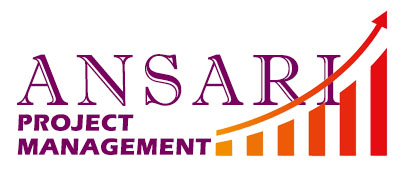1. Why should I study the book "Cholesterol: What You Need to Know"?
Studying this book will provide you with essential knowledge about cholesterol, its impact on health, and ways to manage it effectively, empowering you to make informed decisions regarding your well-being.
2. How can studying cholesterol help you improve your overall health?
Understanding cholesterol levels and their implications can help you make dietary and lifestyle choices that promote heart health, reduce the risk of cardiovascular disease, and improve overall well-being.
3. What are the key problems associated with high cholesterol levels?
High cholesterol levels can lead to the buildup of plaque in the arteries, increasing the risk of heart disease, strokes, and other cardiovascular complications.
4. What are the common misconceptions about cholesterol, and how can studying the book help clarify them?
Common misconceptions include thinking that all cholesterol is bad or that dietary cholesterol is the sole contributor to high cholesterol. The book can provide accurate information, dispel myths, and provide a comprehensive understanding of cholesterol.
5. How can studying the book help you make informed choices about your diet and nutrition?
The book can provide insights into dietary cholesterol sources, explain the impact of different types of fats, and suggest healthier alternatives, empowering you to make informed choices for a well-balanced diet.
6. What role does exercise play in managing cholesterol, and how can studying the book guide you in adopting an effective exercise regimen?
The book can explain how regular physical activity can raise HDL (good) cholesterol levels, lower LDL (bad) cholesterol levels, and help maintain overall cardiovascular health.
7. What are the potential risk factors associated with high cholesterol, and how can studying the book help you identify and address them?
Risk factors include family history, poor diet, sedentary lifestyle, and certain health conditions. The book can provide guidance on identifying and addressing these factors through lifestyle modifications and, if necessary, medical interventions.
8. How can studying cholesterol help you understand the importance of routine health screenings and monitoring?
Studying cholesterol can highlight the significance of routine screenings to track your cholesterol levels, identify any abnormalities, and take necessary actions to maintain optimal health.
9. What are the potential consequences of ignoring high cholesterol levels, and how can studying the book encourage proactive cholesterol management?
Ignoring high cholesterol levels increases the risk of heart disease, heart attacks, strokes, and other cardiovascular complications. Studying the book can motivate you to take charge of your health and adopt effective cholesterol management techniques.
10. What are the latest advancements and treatment options for managing cholesterol, and how can studying the book keep you informed?
The book can provide updated information on medications, lifestyle interventions, and cutting-edge research, helping you stay informed about advancements in cholesterol management and treatment options.

Understanding cholesterol enables you to make proactive choices
11. How can studying cholesterol contribute to long-term heart health and reduce the burden of cardiovascular diseases?
Understanding cholesterol enables you to make proactive choices, such as adopting a heart-healthy diet, regular exercise, and potentially reducing the need for long-term medical interventions, in turn reducing the risk of cardiovascular diseases.
12. What are some practical strategies suggested in the book to reduce cholesterol levels, and how can they be implemented in your daily life?
The book may suggest strategies like incorporating more fruits and vegetables, choosing healthier fats, increasing fiber intake, maintaining a healthy weight, and quitting smoking. Implementing these strategies can lead to positive changes in cholesterol levels and overall health.
13. How can studying cholesterol help you understand the connection between cholesterol management and other health conditions, such as diabetes or hypertension?
Studying cholesterol can provide insights into the interconnections between different health conditions, enabling you to take a holistic approach to managing your overall health and reducing the risk of complications.
14. What are the potential side effects of cholesterol-lowering medications, and how can studying the book help you understand and manage them?
Cholesterol-lowering medications can have side effects. The book can provide information about common side effects and offer guidance on managing them, highlighting the importance of regular monitoring and communication with healthcare professionals.
15. How does studying cholesterol contribute to health literacy and the ability to make informed decisions regarding your own health?
Studying cholesterol equips you with knowledge about the role of cholesterol in health, empowering you to interpret medical advice, ask informed questions, and actively participate in discussions about your health with healthcare providers.
16. How can addressing high cholesterol levels through lifestyle modifications positively impact your energy levels and overall vitality?
By actively managing cholesterol, you can improve blood circulation, reduce the risk of heart-related fatigue, and promote overall vitality, leading to increased energy levels and improved quality of life.
17. What are the potential psychological or emotional effects of high cholesterol, and how can studying the book help you address them?
High cholesterol levels can lead to increased stress or anxiety. Studying the book can provide strategies to manage these emotional effects, encouraging a holistic approach to cholesterol management.
18. What is the role of cholesterol in brain health, and how can studying the book help you understand the connection between cholesterol and cognitive well-being?
Cholesterol plays a vital role in brain function. Studying the book can help you understand how maintaining proper cholesterol levels can contribute to better brain health and cognitive function.
19. How can studying cholesterol contribute to improved self-care and overall lifestyle choices that support well-being?
Studying cholesterol provides you with knowledge about the impact of various lifestyle factors on cholesterol levels. This empowers you to make conscious choices that support optimal self-care and overall well-being.
20. What are the potential social benefits of cholesterol management, and how can studying the book help you make positive contributions to your community?
Managing cholesterol promotes long-term health, enabling you to actively participate in social activities, contribute to your community, and serve as a role model for healthy living.

helping raise awareness about the impact of cholesterol on health
21. How can studying cholesterol empower you to educate and inform others about the importance of cholesterol management and heart health?
Studying cholesterol equips you with knowledge that you can share with others, helping raise awareness about the impact of cholesterol on health and fostering a culture of proactive cholesterol management.
22. What are the potential financial implications of high cholesterol, and how can studying the book help you understand the long-term cost-saving benefits of effective cholesterol management?
High cholesterol can lead to increased healthcare expenses for managing associated conditions. Studying the book can highlight the long-term cost-saving benefits of proactive cholesterol management and maintaining good health.
23. How can studying cholesterol contribute to better understanding the nutrition labels and making informed choices while grocery shopping?
Studying cholesterol helps you interpret and understand nutrition labels, enabling you to make healthier food choices and identify products that align with your cholesterol management goals.
24. What are the potential barriers to effective cholesterol management, and how can studying the book help you overcome them?
Barriers can include lack of knowledge, unhealthy lifestyle habits, and difficulties in implementing dietary changes. Studying the book provides information, practical tips, and inspiration necessary to overcome these barriers.
25. How can studying cholesterol contribute to fostering a culture of prevention and proactive healthcare?
Studying cholesterol encourages you to take charge of your health, promoting a preventive approach to healthcare and prioritizing early intervention and management to prevent future complications.
26. What are some common myths surrounding cholesterol management, and how can studying the book help debunk them?
Myths may include beliefs that all cholesterol-lowering foods are effective or that only older individuals should be concerned about cholesterol. Studying the book can provide evidence-based information to debunk these myths.
27. How can studying cholesterol empower you to advocate for heart health and cholesterol management within your family or social circles?
Studying cholesterol equips you with knowledge, statistics, and effective communication strategies that can help you promote heart health and cholesterol management among your loved ones and within your community.
28. What are the potential benefits of cholesterol management for different age groups, and how can studying the book help tailor personalized approaches?
Studying cholesterol enables you to understand the age-specific risks and benefits associated with cholesterol management, allowing you to personalize strategies to meet the needs of different age groups.
29. How can studying cholesterol contribute to the development of long-term health goals and motivate consistent lifestyle changes?
Studying cholesterol provides insights into the long-term consequences of high cholesterol levels, serving as a motivation to establish and adhere to health goals that prioritize cholesterol management.
30. How does studying cholesterol align with the broader goal of personal wellness and preventive healthcare?
Studying cholesterol helps you take a proactive approach to your health, aligning with the overarching goal of personal wellness and preventive healthcare. By actively managing cholesterol, you prioritize your well-being and reduce the risk of future health complications.
Dear Visitor; Please take a look at the list of 50 most visited websites in the world wide web: YouTube, Facebook, google, translate, gmail, weather, amazon, Instagram, cricbuzz, Hotmail, wordle, satta king, twitter, yahoo, yandex, sarkari result, Netflix, google maps, yahoo mail, roblox, whatsapp, NBA, BBC news, outlook, pinterest, flipkart, eBay, omegle, live score, tiktok, canva, ipl, premier league, hava durumu, ibomma, walmart, twitch, ikea, shein, linkedin, home depot, e devlet, lottery, snaptik, cricket, serie a, nfl, spotify, fox news, amazon prime; There is no book publishing related or project management website in this list. We are working hard to bring these important issues to the center of concentration of societies. Please introduce us via social media, share our website with others and help us to make our world a better place to live. Best Regards.













Write your review